Unit 4: Literature Review on Evidence-Based Practice in Healthcare
VerifiedAdded on 2023/02/02
|21
|1764
|57
Report
AI Summary
This report presents a comprehensive literature review on evidence-based practice (EBP) within the context of health and social care. It begins by emphasizing the fundamental importance of EBP in improving patient outcomes and quality of life, outlining the integration of both external and internal evidence. The report then details the EBP process, including question formulation, literature search, evidence appraisal, selection, application, action planning, implementation, and evaluation. Key skills for conducting a literature review are identified, encompassing personal qualities like decision-making and interpersonal skills, alongside professional attributes such as problem-solving, technical skills, and presentation capabilities. The report also addresses ethical considerations for research, including informed consent, risk minimization, anonymity, and avoiding deceptive practices. The main body of the review analyzes several articles, focusing on communication challenges in palliative care, the importance of courage in nursing, techniques for handling difficult conversations, and overcoming communication barriers. The review concludes by highlighting the positive impact of effective communication on patient outcomes and proposes a research project to analyze the impact of effective communication on patient outcomes. The project's methodology involves secondary data sources and random sampling. The review emphasizes the significance of effective communication in healthcare for improving patient experiences and outcomes, including a reflection on the author's personal growth in patient interaction and workplace practices.
1 out of 21
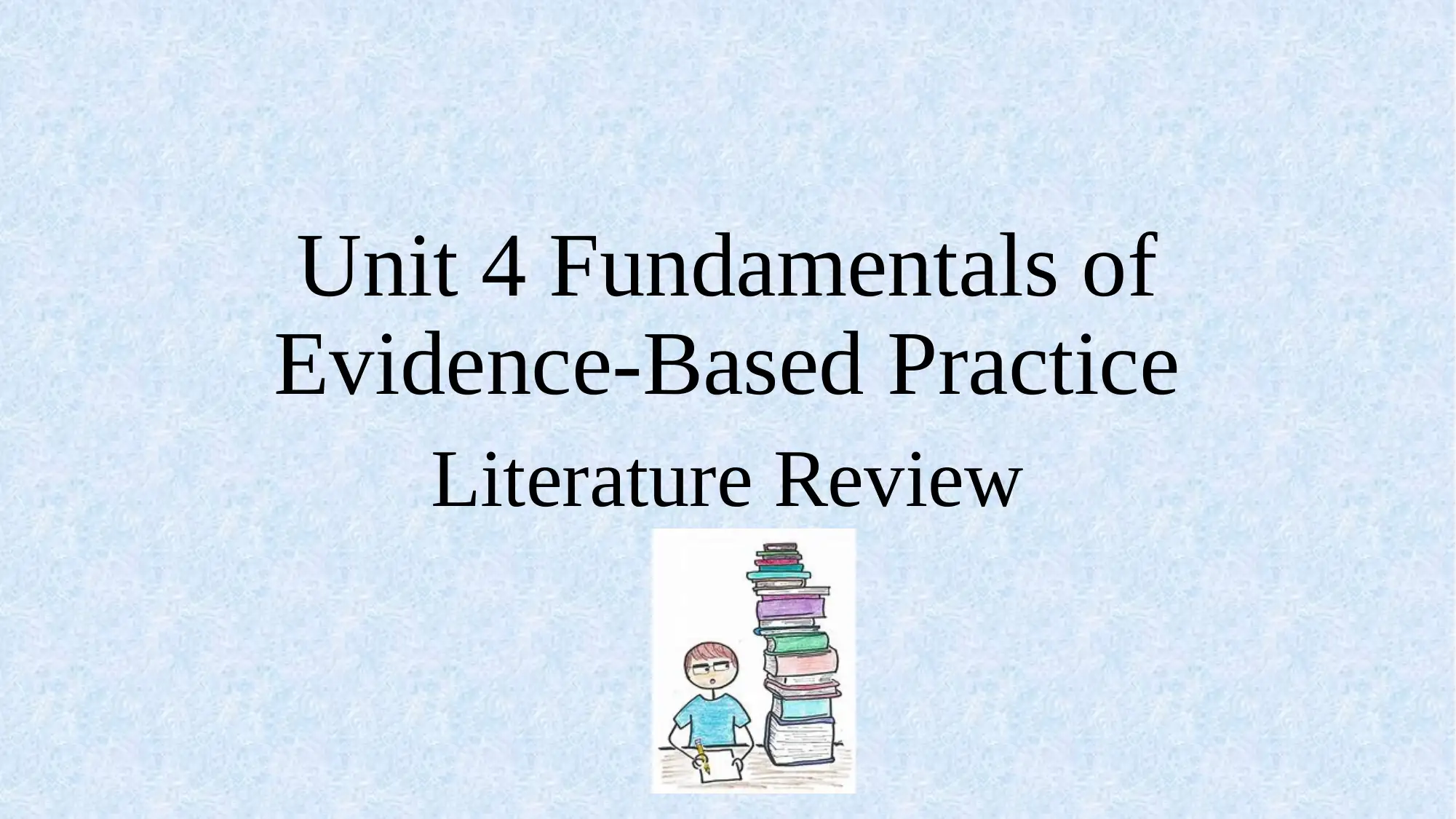
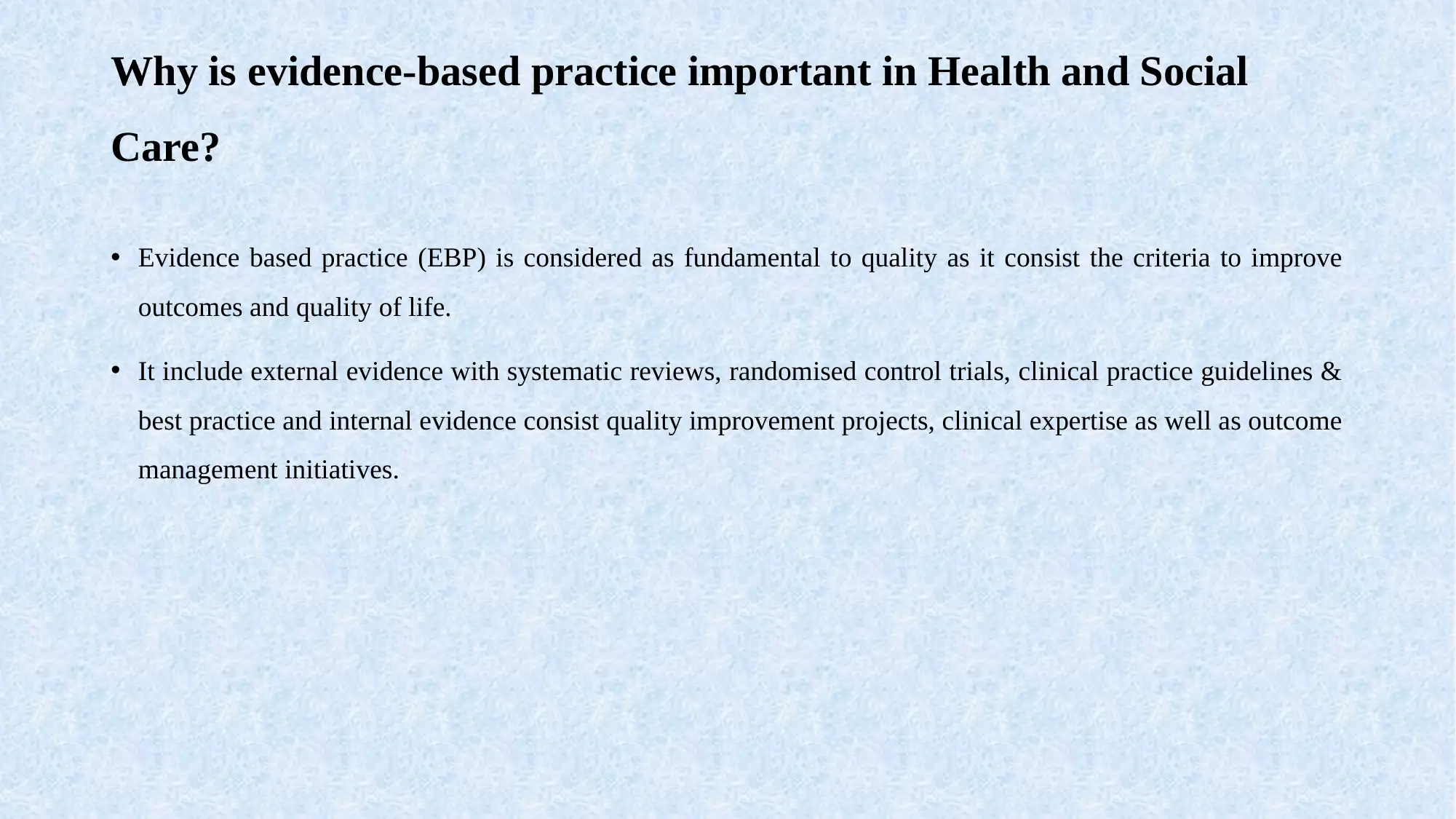
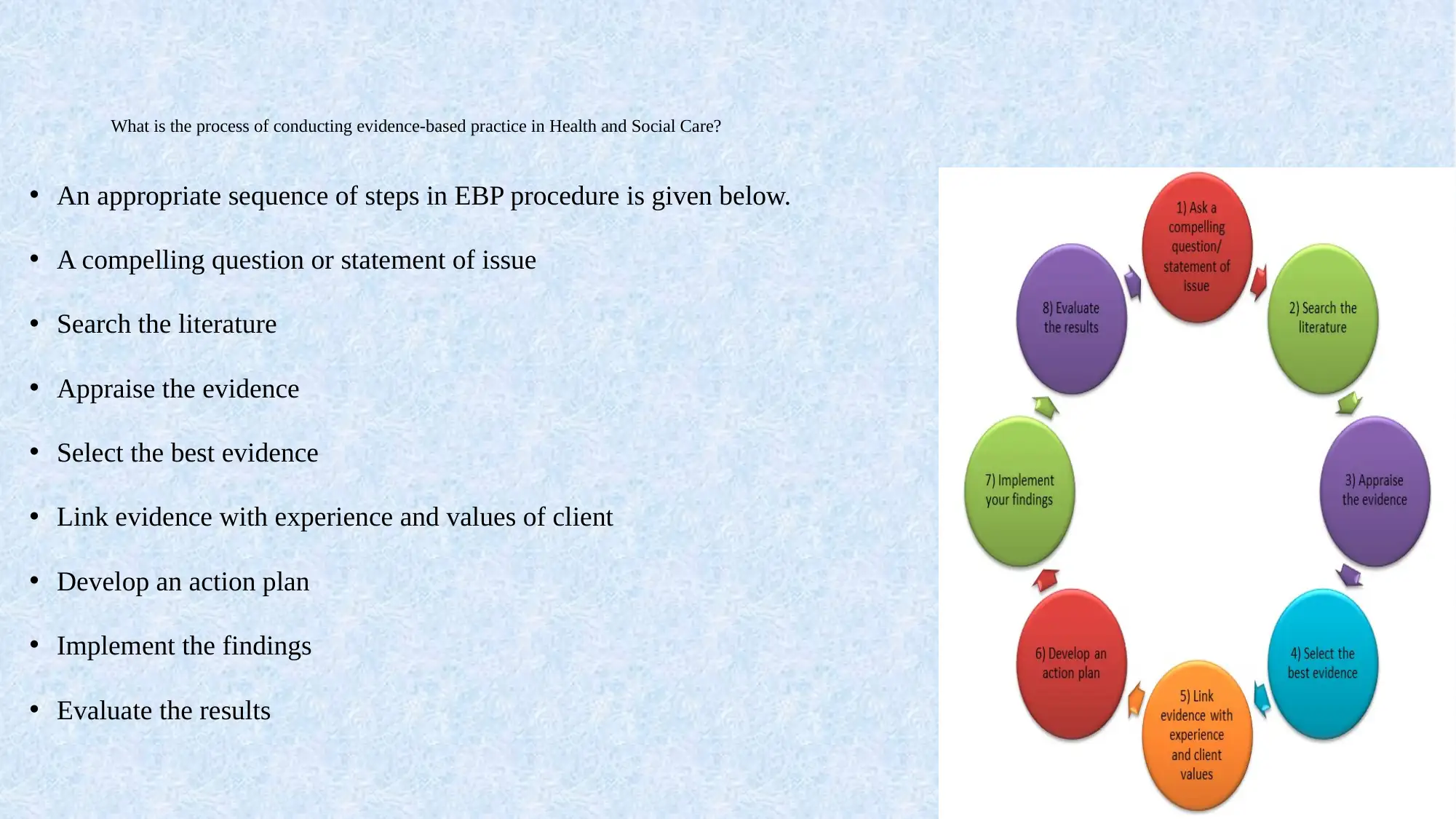

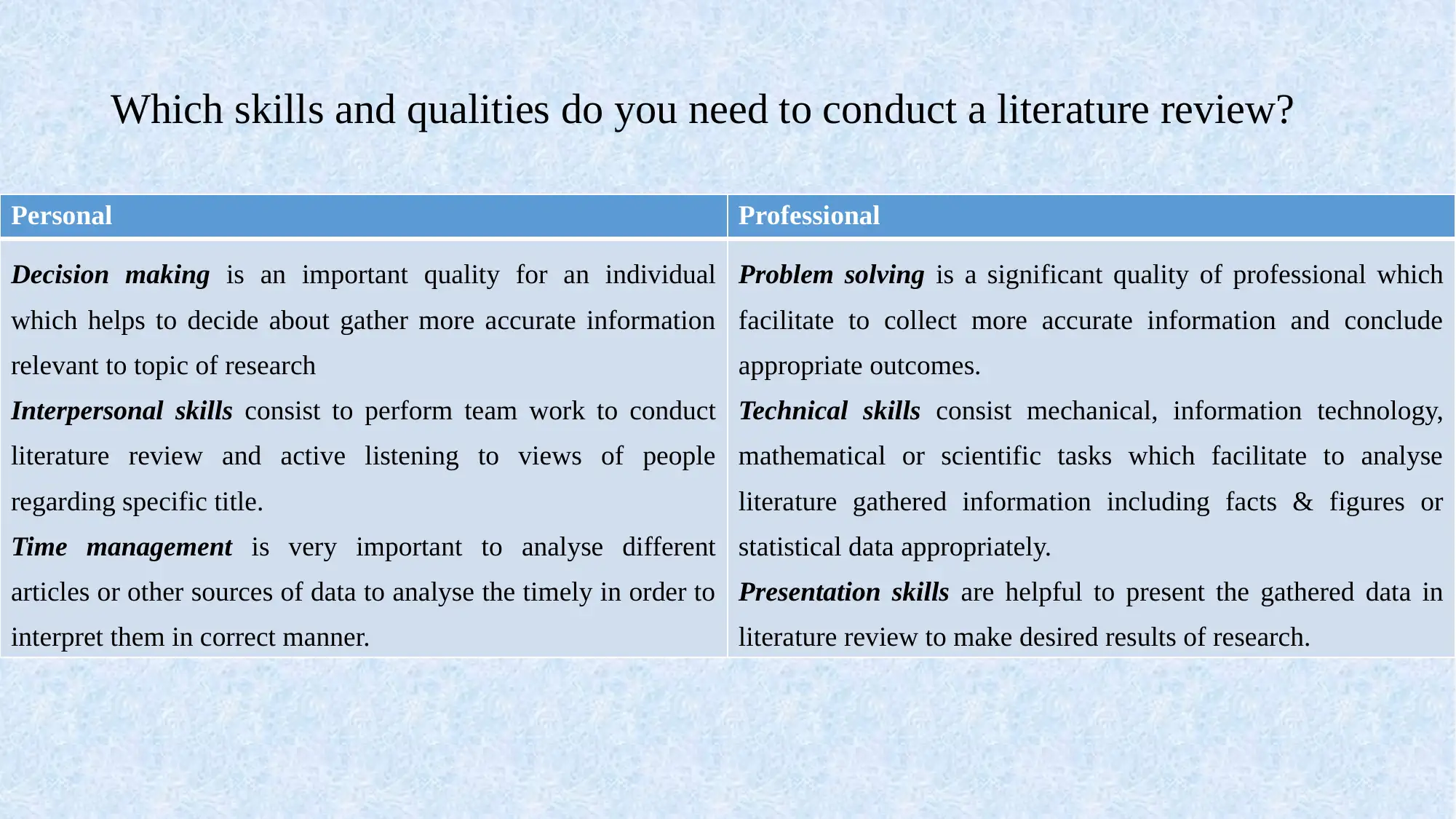
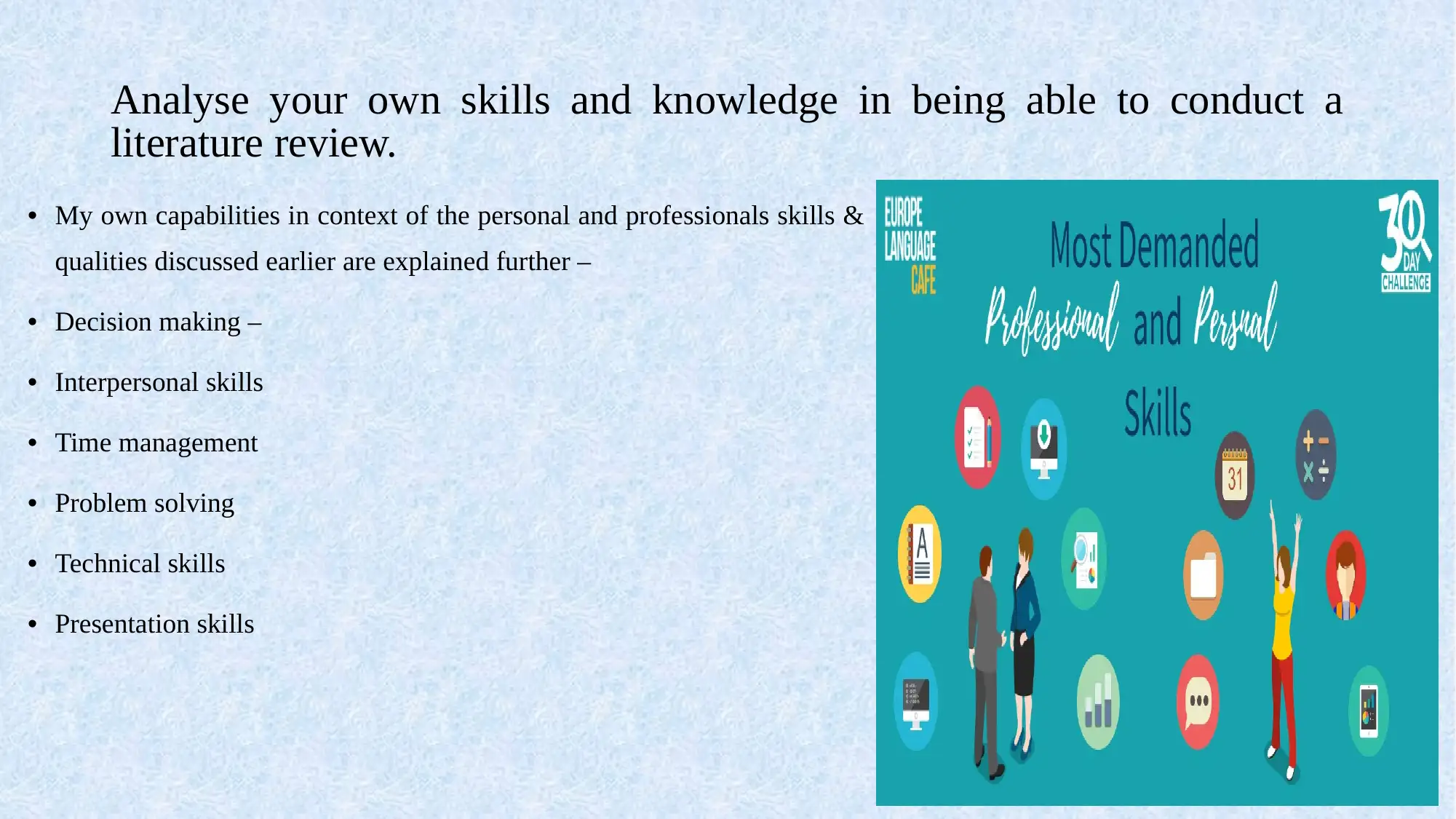
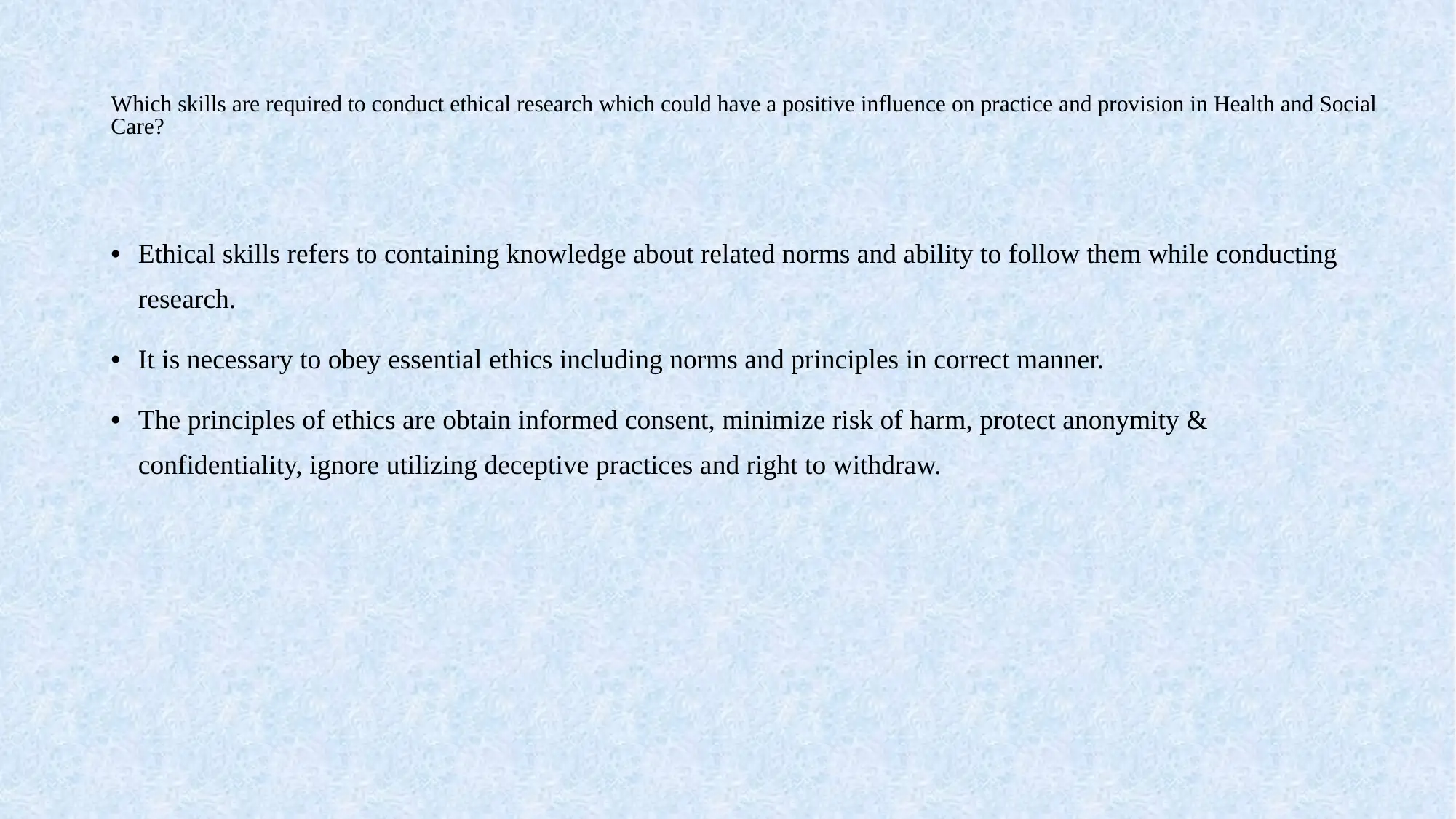
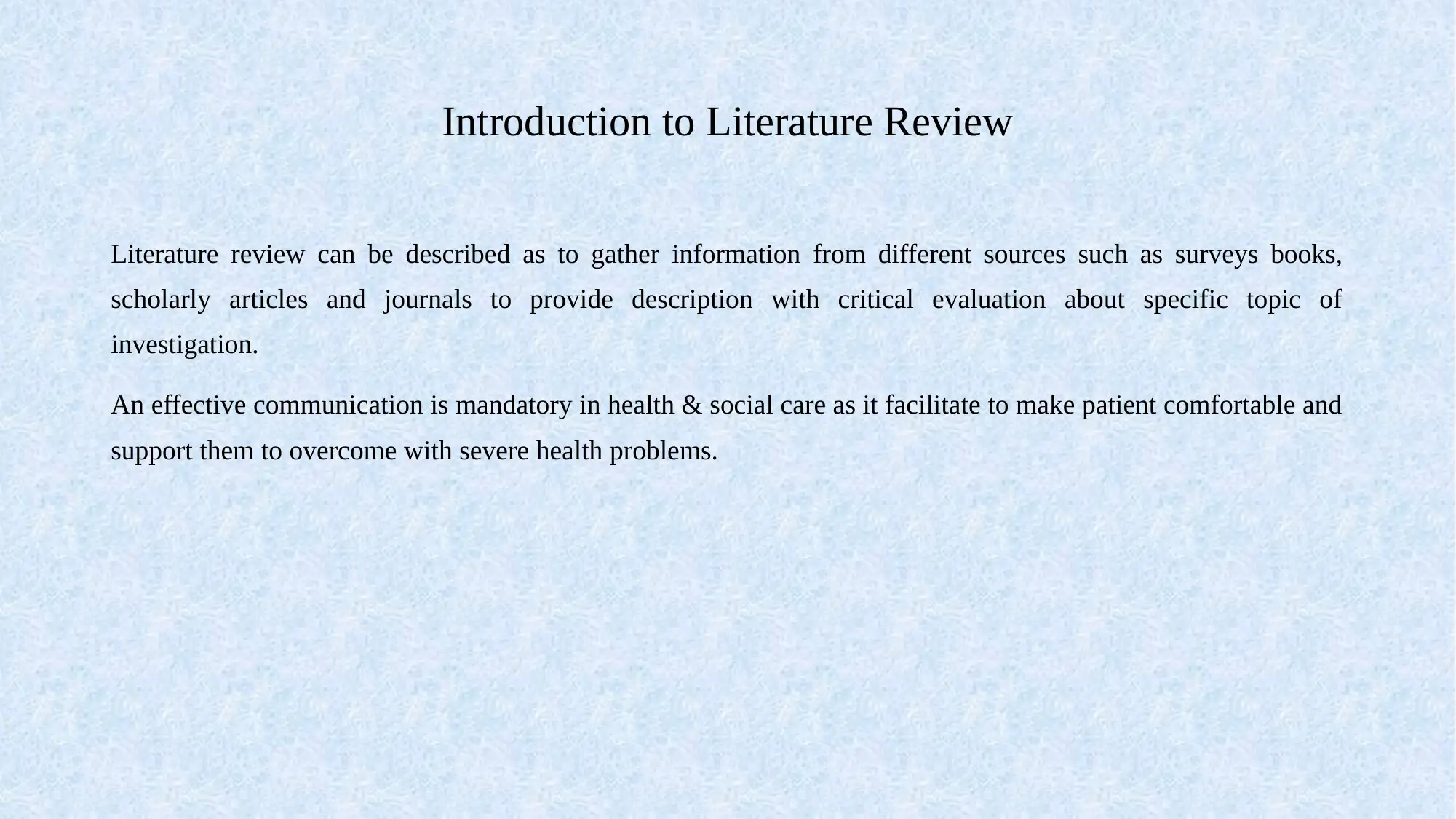
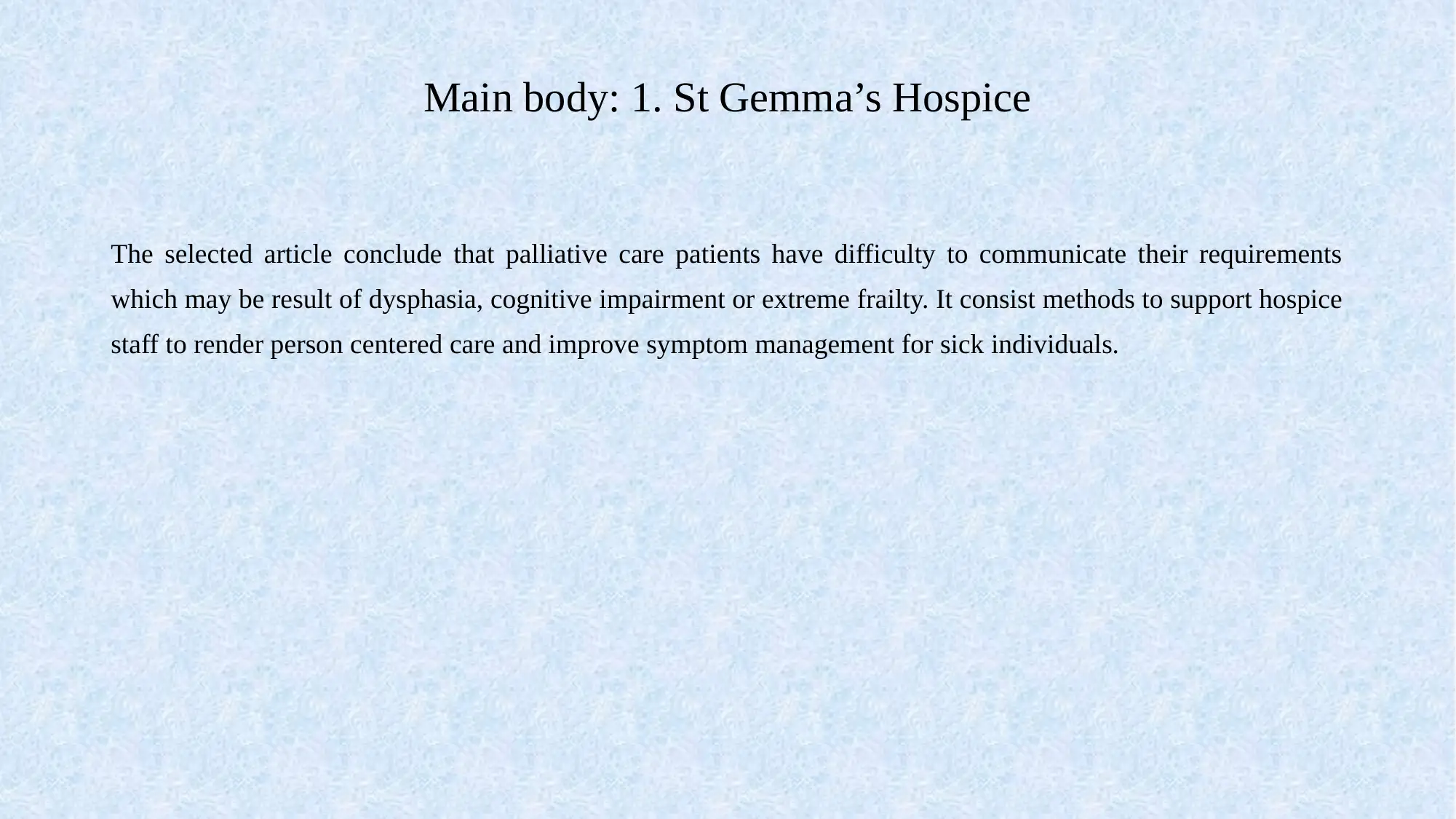
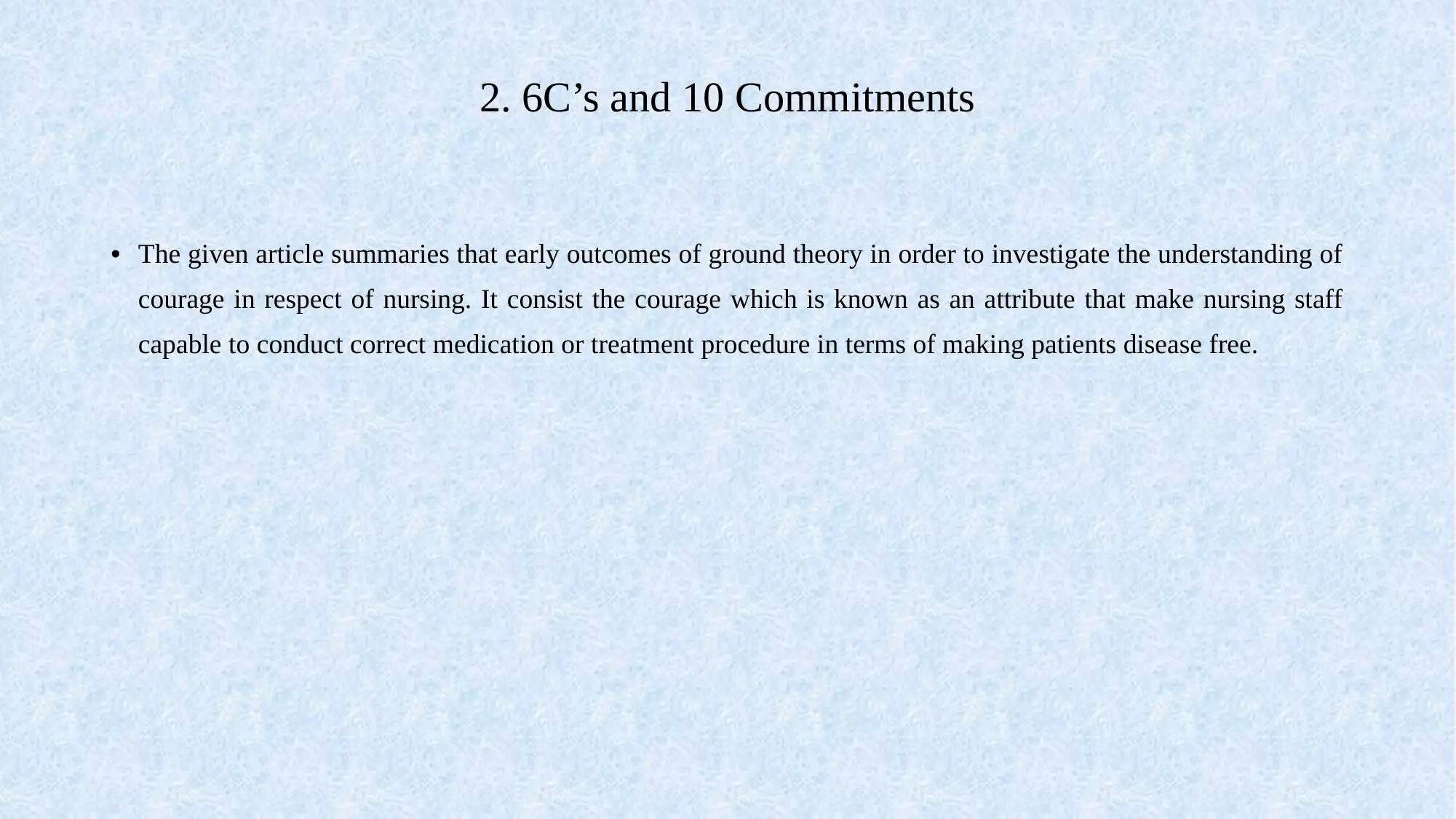
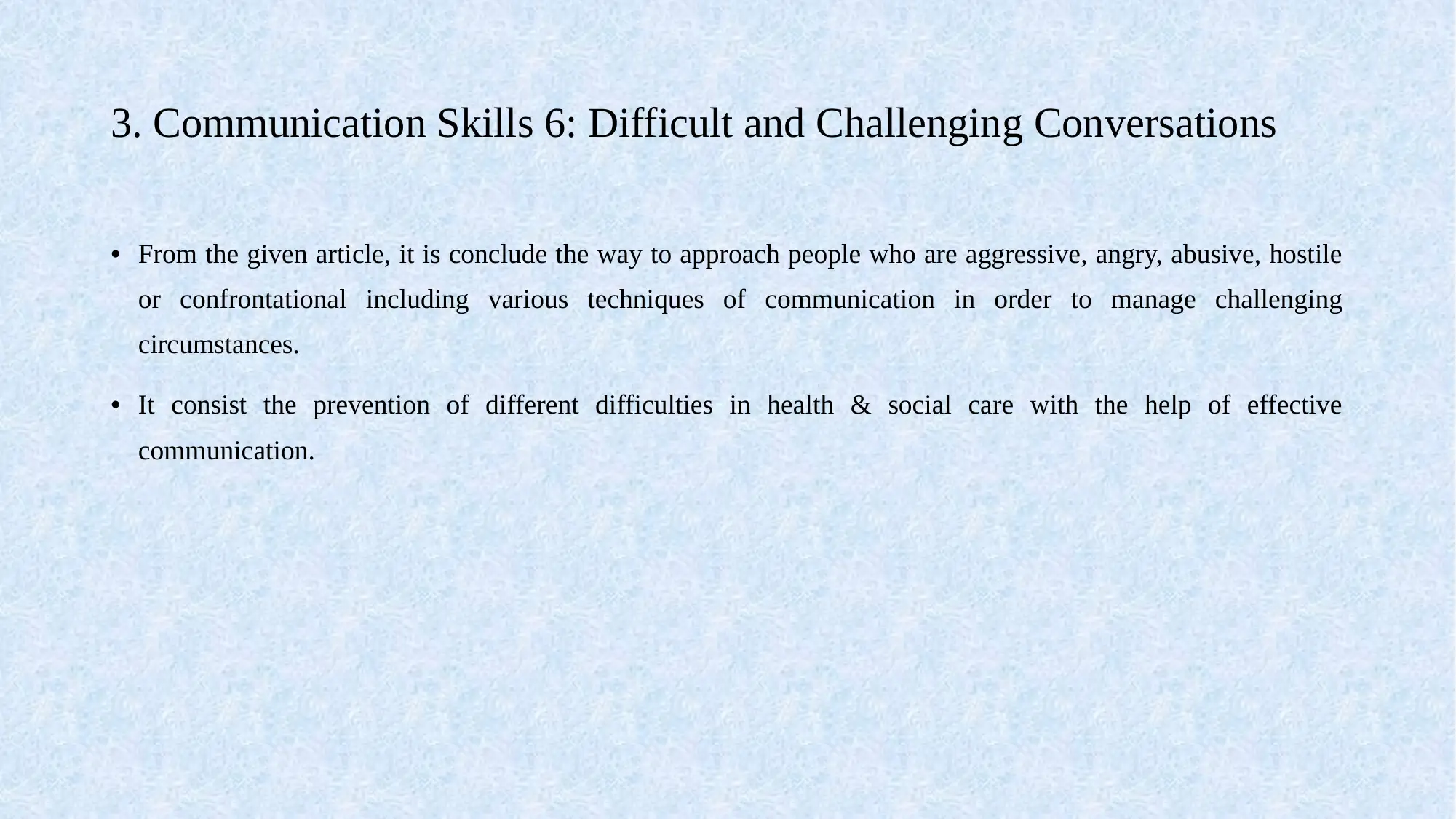
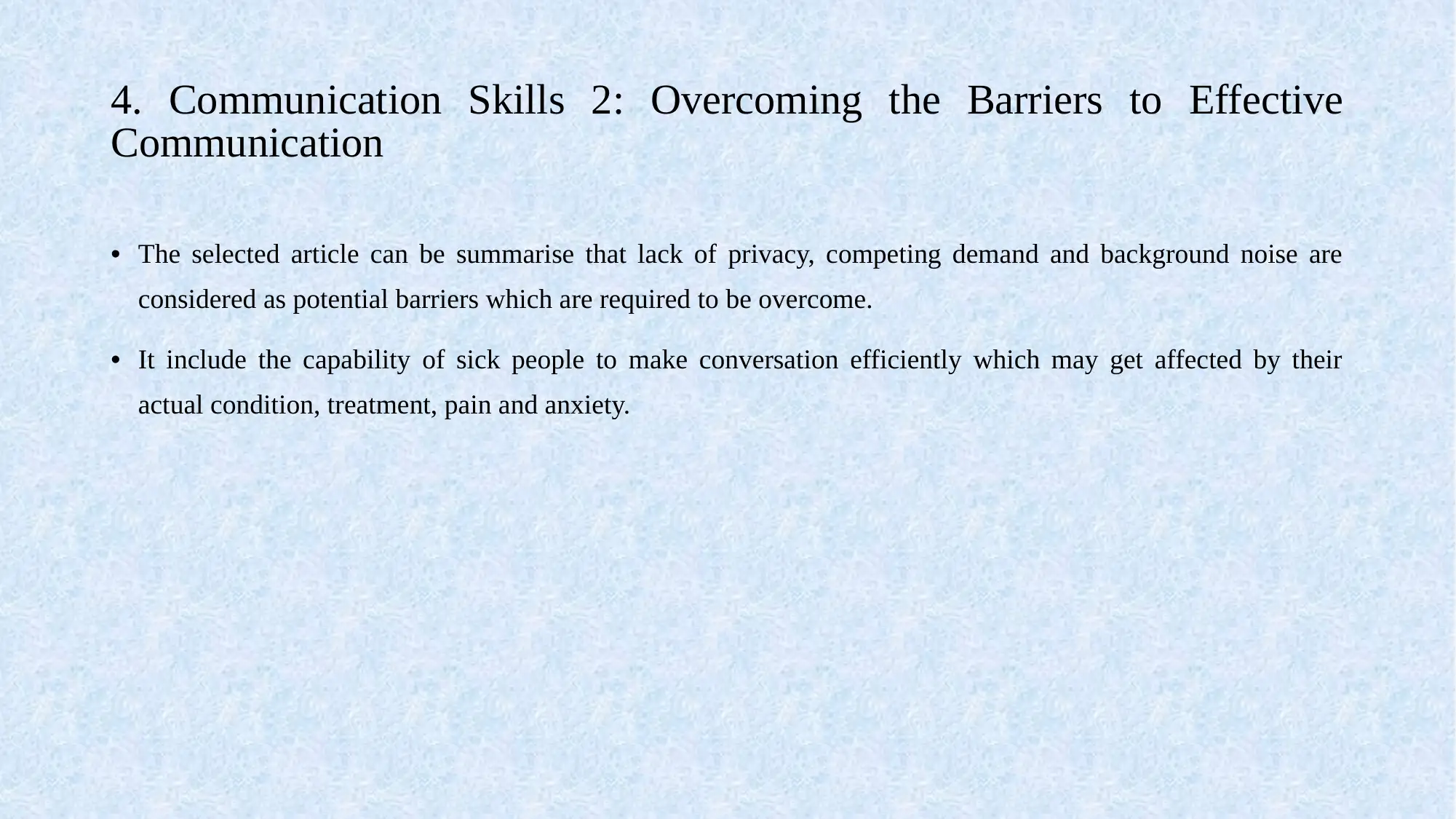
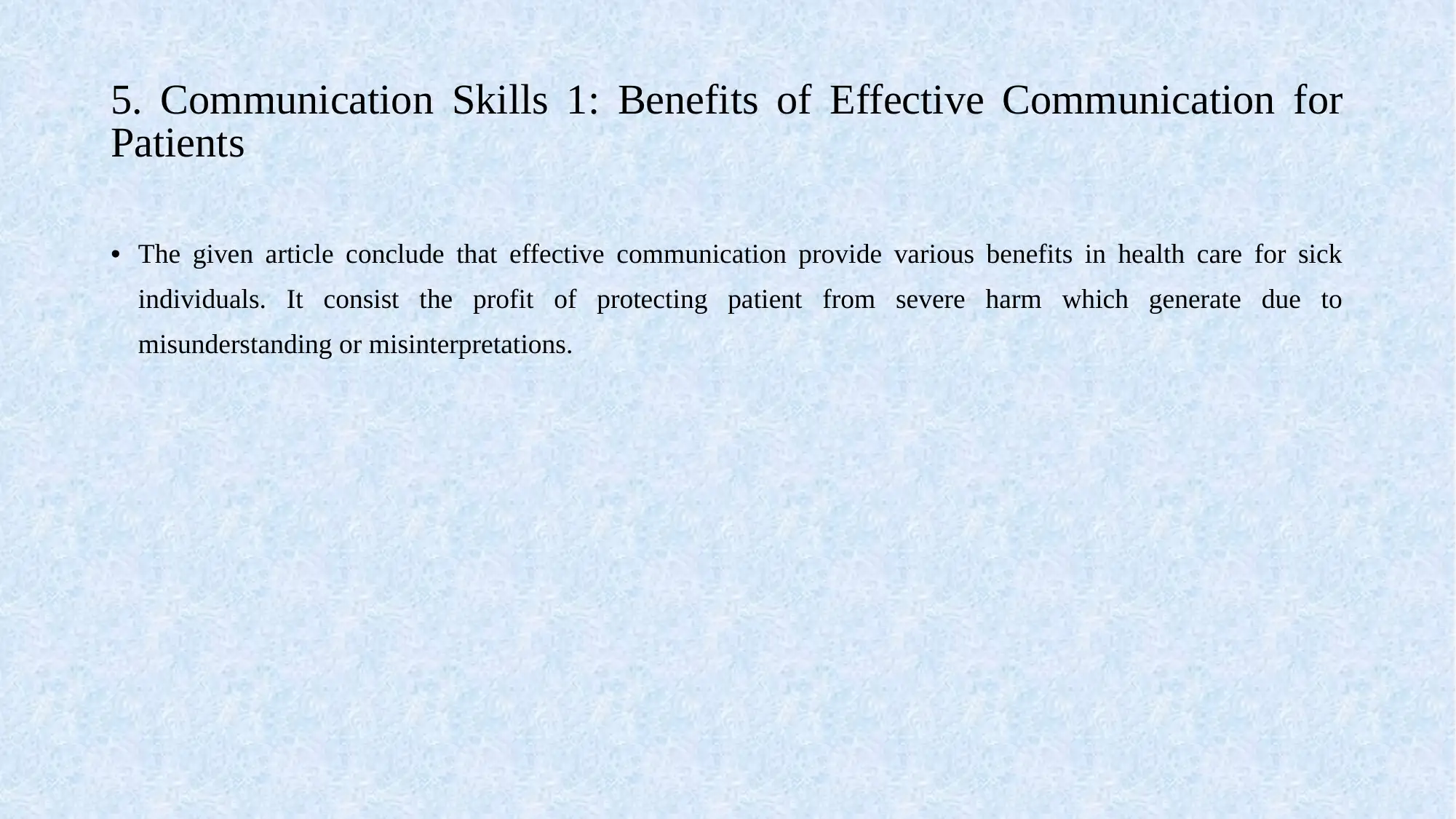






![[object Object]](/_next/static/media/star-bottom.7253800d.svg)